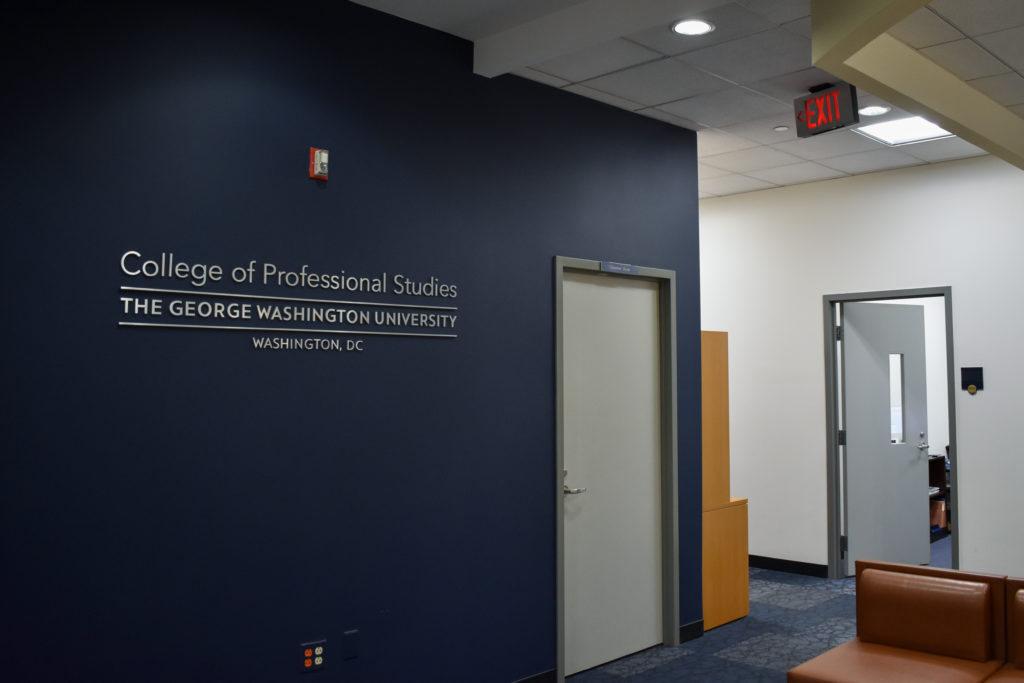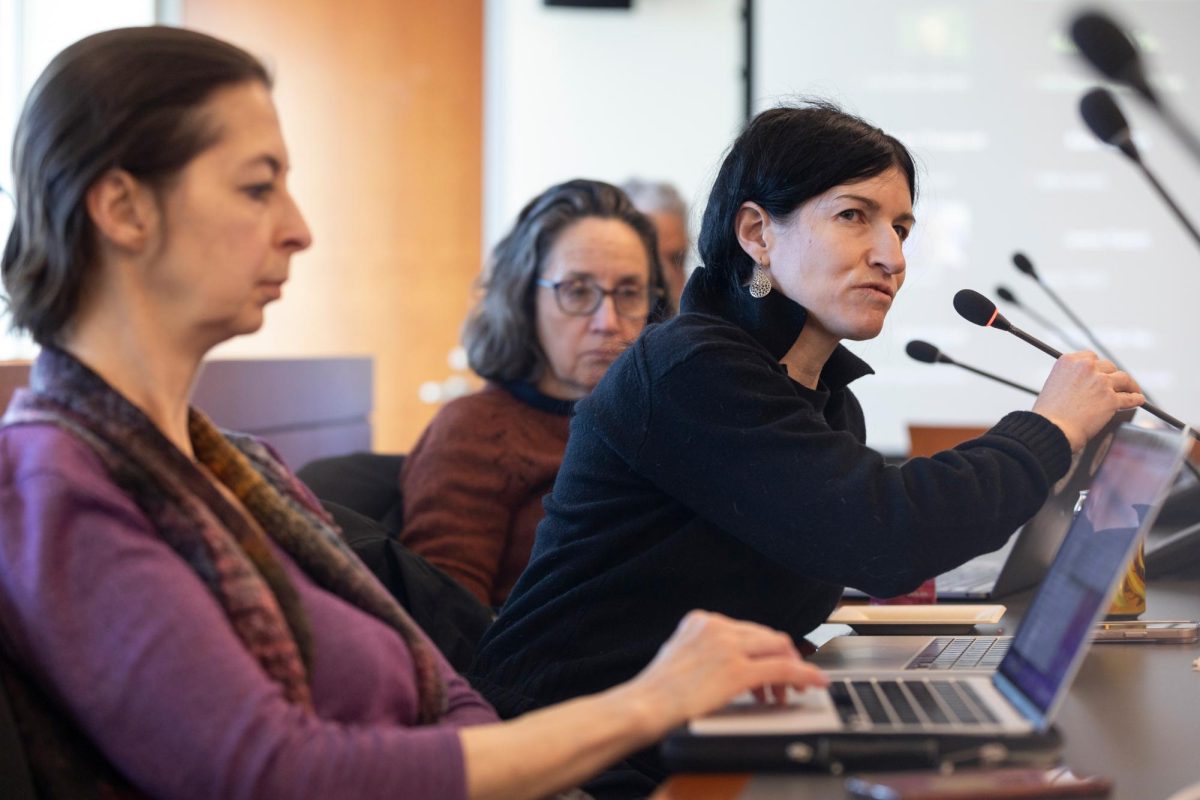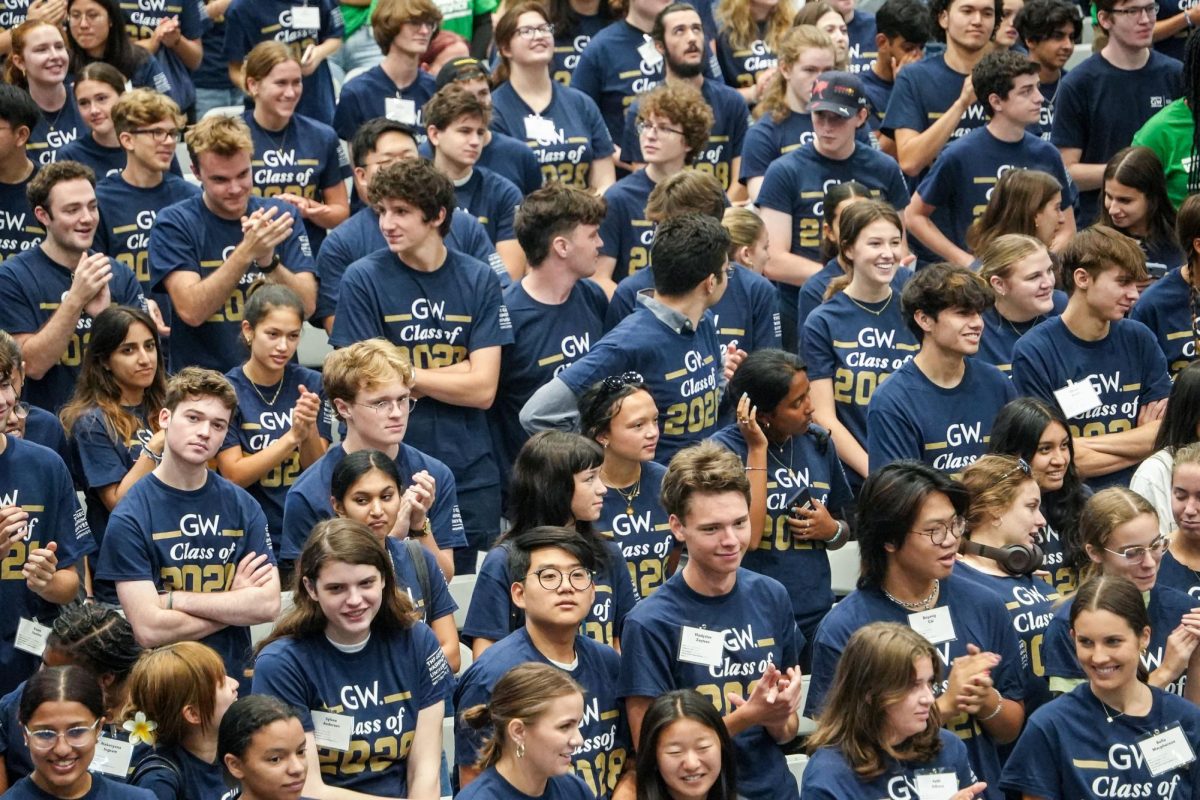Members of the Global Women’s Institute launched an online credential exam last month, the first of its kind, to certify experts in gender and international development.
Officials involved with the development of the GenderPro Credential said the exam is designed for professionals working in the international development or humanitarian fields who want to be certified in their work to address gender inequality worldwide. Those who pass the exam will demonstrate their knowledge and skills in gender analysis – the study of public policy outcomes through the lens of gender issues – to colleagues and potential employers, according to the exam’s website.
Chelsea Ullman, a research scientist and policy associate at GWI, said the exam incorporates the most essential “competencies” needed to address gender inequality, like gender analysis and gender-integrated program evaluation. She said the exam was developed in consultation with global leaders and experts in the international development and humanitarian fields.
“The goal of both the GenderPro credential exam and the Capacity Building Course is to strengthen international development and humanitarian programming so that it better addresses gender inequality,” she said in an email.
Interested candidates can prepare for the exam by enrolling in GWI’s GenderPro Capacity Building Program, a 16-week course in gender analysis integration and advocacy programs monitoring.
GWI content developers and contributors piloted the program in 2019. The course is endorsed by the GenderPro Alliance, a group composed of organizations like the United Nations International Children’s Emergency Fund and the Bill and Melinda Gates Foundation.
Ullman said UNICEF and the Gates Foundation provided the funding necessary to develop the exam. She said officials hope the exam will standardize and professionalize the field of international development and humanitarian programs, so they can better address issues of gender inequality.
“We were committed to making the credential exam free to take and widely accessible and as such wanted to develop an exam that could be taken entirely virtually in a multiple-choice way without adding the administrative cost of grading a different kind of exam,” Ullman said.
Experts in international development said the credential will help integrate the application of gender concepts to the field of international development since it typically lacks official benchmarks to measure talent and knowledge.
Nancy DiTomaso, a professor of management and global business at Rutgers University, said professionals can “fill in gaps” in their knowledge of women’s issues in the field by taking the exam. She said passing the exam will help employers identify prepared and qualified candidates in the field.
“Such kinds of credentialing usually improves things for everyone,” DiTomaso said in an email. “It legitimizes the field in the sense of demonstrating that there is knowledge and skill involved.”
She said professional organizations in other fields like diversity, equity and inclusion and human resource management often create these types of standardization credentials instead of higher education institutions.
DiTomaso said universities looking to create this type of exam can better legitimize the field because their work is usually directly tied to new research and “regularly reviewed” knowledge. She said this may not be the case for professional organizations that develop credential exams.
“There are always competitors,” she said. “In a field that has not had such a credential, those who are first have to establish their credibility.”
Cynthia Enloe, a research professor of international development, community and environment at Clark University, said developing such an exam indicates to the public and potential employers that gender analysis is a skill that those in humanitarian work have to cultivate through in-depth study.
“The people that we think will most want to develop these skills, again, it’s not just getting the credential, it’s developing gender analytical skills, which most people come out of university or out of graduate programs not having,” she said.
Enloe said the exam will help mid-career specialists in development who wish to work for government agencies, non-governmental organizations and civil society organizations. She said the exam would assess subject areas that graduate programs don’t typically teach, like a feminist-informed study of policy areas.
“You need gender analytical skills to craft and evaluate every program that is for social justice,” she said. “The people that will probably be most interested in gaining these skills and showing them that they have them by earning this credential are likely to be people in NGOs, civil society organizations or are in government agencies.”








